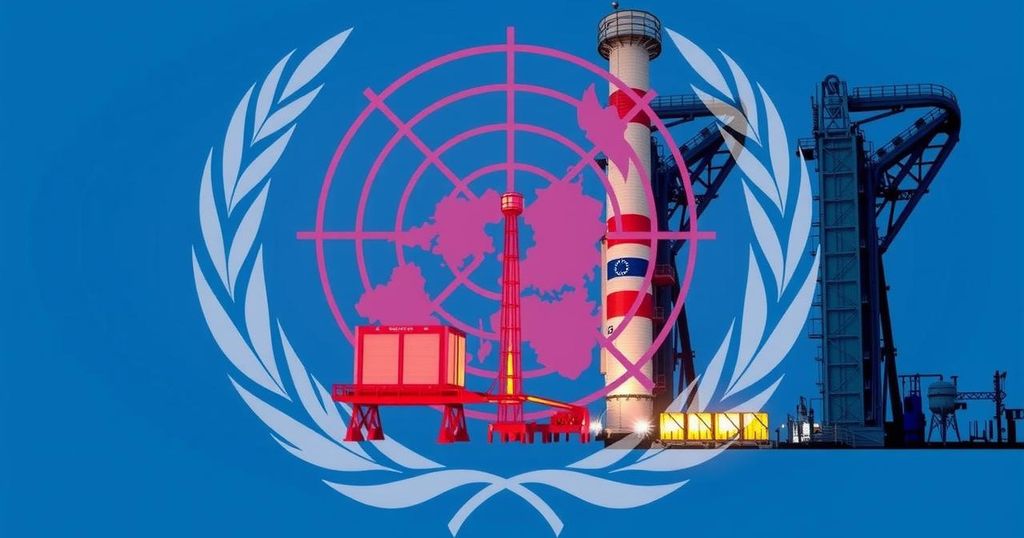Rafael Grossi, head of the IAEA, expresses alarm over Iran’s increase in uranium enrichment to 60%, signifying potential advances toward nuclear weapons capabilities. The geopolitical context sees this as a response to military setbacks in the region. Grossi cautions against military strikes on Iranian facilities, warning of serious repercussions and highlighting the broader challenges facing the global non-proliferation regime.
Rafael Grossi, the Director General of the International Atomic Energy Agency (IAEA), expressed significant concern regarding Iran’s recent escalation in uranium enrichment, particularly the increase in production of uranium enriched to 60%. This level of enrichment is perilously close to that needed for a nuclear weapon and has been largely perceived as a reaction by Tehran to various military and diplomatic challenges faced in the region. Although Grossi acknowledged public opinions in Iran calling for the development of a nuclear weapon, he indicated that this was not currently favored by the prevailing leadership, emphasizing that the situation remains highly concerning.
At the Manama Dialogue conference in Bahrain, Mr. Grossi warned against any military action against Iranian nuclear sites, predicting severe consequences and potential retaliatory measures from Tehran. He highlighted the IAEA’s findings that Iran is dramatically increasing its uranium production capacity at its Fordow facility from an estimated 4.7kg to 34kg per month. This escalation underscores a much larger and growing nuclear program, which he believes elevates the risk of nuclear proliferation in the region, as a broader conversation concerning nuclear armament has begun to normalize among various nations.
Despite Iran’s denials of a military nuclear program, Grossi asserted that the country’s nuclear initiatives have expanded significantly over the past decade. He expressed apprehension regarding the possible reconsideration of developing nuclear weapons as a national strategy by Iran, despite assurances received during his recent visit. Grossi stated, “In my conversations with the government, that doesn’t seem to be the path of choice,” yet he remains cautious about the shifting narrative among some political voices within Iran. Meanwhile, the world’s nuclear non-proliferation treaty faces unprecedented challenges as established powers modernize their arsenals, leading to an increasing number of nations contemplating their nuclear capabilities in light of global instability.
The article focuses on the increasing concerns expressed by Rafael Grossi, the Director General of the IAEA, regarding Iran’s enhancements in uranium enrichment capabilities, specifically targeting the implications of moving towards 60% enriched uranium. This level is dangerously close to weapons-grade material. The context is rooted in the larger geopolitical situation where Iran’s nuclear ambitions are under scrutiny amid tensions in the Middle East. The narrative includes warnings about military action against Iran’s nuclear facilities, the evolving public discourse on nuclear armament, and the IAEA’s role in monitoring compliance with international nuclear agreements.
In conclusion, the rising levels of uranium enrichment in Iran have raised alarms at the IAEA, highlighting the potential for nuclear proliferation in a volatile region. Rafael Grossi’s warnings against military action underscore the seriousness of the situation and the potential global repercussions. With ongoing discussions surrounding nuclear weapons gaining traction, the state of global non-proliferation faces significant challenges. It is important for the international community to engage constructively with Iran to mitigate these risks and promote stability.
Original Source: www.bbc.com







